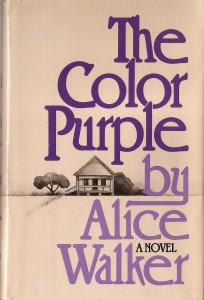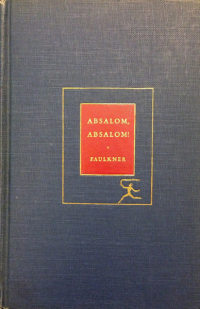Squeak is a minor character in Alice Walker’s
The Color Purple, but she is essential, as she is the only character expressly identified as mixed race, having both white and black ancestry. Squeak’s story is one of growth and transformation. Squeak becomes Mary Agnes, and in the process becomes strong, independent, and appreciated.She is called Squeak because she is quiet, and assumed to be ineffectual. She is often called “little Squeak”, as she has been conditioned by society to respond affectionately and feebly to everyone, especially the men, around her. She constantly calls her lover Harpo “baby” and cries when she is ignored (84). She believes her light skin is the primary reason Harpo is with her, suggesting her race is a large aspect of her identity. She asks Harpo, “Do you really love me, or just my color?” (97).Initially Squeak begins a life with Harpo after Sophia leaves him, creating a natural point of comparison between the two females. At the beginning of the novel, Squeak acts as a foil to the thick-skinned and confident Sophia, who does not accept disrespect from anyone, male or female. After Sophia is imprisoned for defending herself against the mayor’s assault, the characters are distraught, and are considering solutions when Squeak asks, “What can we do?” (90). Squeak figures out she is the blood-relative of the white warden, and Celie and the other women “dress Squeak like a white woman” (93).She is passing for a white woman when she goes to the prison to plead for Sophia’s release, only to return having been raped by the warden. This event changes Squeak, causing her to realize her power and self-worth. Her first words to Harpo after he recognizes she has been attacked are “Shut Up, Harpo. I’m telling it” (95).After she is raped, she fights against Harpo just as Sophia did, and ultimately leaves him just as Sophia did. She becomes a singer like Shug, providing herself with a job that relies on her feminine singing voice, which is “high, sort of mewing” according to Celie(98). While she initially sings Shug’s songs at the juke joint, she eventually writes her own. Additionally, she helps Sophia take care of the Mayor’s children. In doing this, she becomes a part of a community of strong women of color.
Squeak’s character is shaped largely by her relativity to the other women in the novel. Readers are introduced to her as Harpo’s new girl, where she is slightly villainized as she is seen as Sophia’s replacement. This is evidenced when Squeak’s teeth are knocked out by Sophia during a confrontation. By the end of the novel, Mary Agnes’s character is as dependable and competent as any of the other female characters, and this forces the characters and readers to respect her. This transformation and this sense of separation from the other characters is evident in her song,
They calls me yellow,
like yellow be my name
They calls me yellow
like yellow be my name
But if yellow is a name
Why ain’t black the same
Well, if I say hey black girl
Lord, she try to ruin my game
(99).
Squeak stands strong with the other women in the novel, while also claiming her own independence and identity as a woman of mixed race, as an outsider looking in. This separateness becomes a point of independence for Mary Agnes. At the novel’s beginning Squeak is an outsider in her world. She stood pale in comparison to strong characters like Shug and Sophia. By the end of the novel, she proves that she is not to be compared to other women, that she stands alone.
 Character: Squeak/Mary Agnes
Character: Squeak/Mary Agnes

